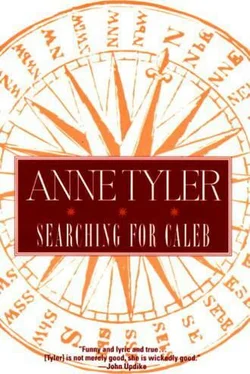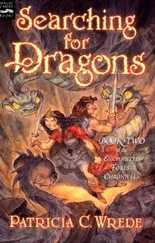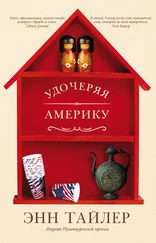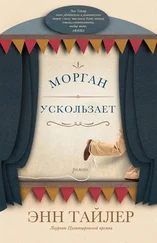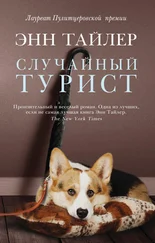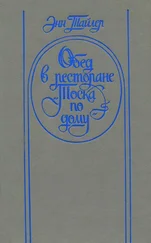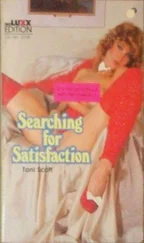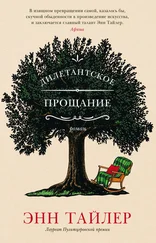stamina . He couldn’t endure, he wouldn’t stay around to fight it out or live it down or sit it through, whatever was required. He hadn’t the patience. He wanted something new, something different, he couldn’t quite name it. He thought things would be better somewhere else. Anywhere else. And what did it get him? Watch, next time I’m in Baltimore I’ll tell the family, ‘Paul Tabor died.’ ‘Paul
who ?’ they’ll say. ‘Paul Tabor, it was in the Baltimore
Sun . Don’t you read it any more? Don’t you know?’ Well, of course they do read it and would catch any familiar name in a flash but not Paul Tabor’s. Forgotten, all forgotten. He discarded us, now he’s dead and forgotten. Hear what I say, Justine. Do you hear?”
Justine smiled at him. “I hear,” she said.
She had moved away from Baltimore herself. She and her husband and daughter now lived in Semple, Virginia; in another place last year and another the year before that. (Her husband was a restless man.) Next week they were moving to Caro Mill, Maryland. Was it Caro Mill? Caro Mills? Sometimes all these places would run together in her mind. She would mentally locate friends in towns those friends had never set foot in, she would await a visit from a client whom she had left two years ago without a forwarding address. She would ransack the telephone book for a doctor or a dentist or a plumber who was actually three hundred miles away and three or four or fourteen years in the past. Her grandfather didn’t guess that, probably. Or care. He had scarcely bothered to learn the towns’ names in the first place. Although he lived with Justine and made all those moves with her he called it visiting; he considered himself a citizen still of Baltimore, his birthplace. All other towns were ephemeral, no-account; he shuffled through them absent-mindedly like a man passing a string of shanties on the way to his own sturdy house. When he arrived in Baltimore (for Thanksgiving or Christmas or the Fourth of July) he would heave a sigh and lower the sharp narrow shoulders that he held, at all other times, so tightly hunched. The brackets around his mouth would relax somewhat. He would set his old leather suitcase down with finality, as if it held all his earthly goods and not just a shirt and a change of underwear and a scruffy toothbrush. “There’s no place in the world like Baltimore, Maryland,” he would say.
He said it now.
This morning they had passed through the Baltimore railroad station, even stopping a moment to let other, luckier passengers alight. The thought of having come so near must have made him melancholy. He looked down at his clipping now and shook his head, maybe even regretting this trip, which had been entirely his own idea. But when Justine said, “Are you tired, Grandfather?”—thinning her voice to that special, carrying tone he would be certain to hear — he only looked at her blankly. It seemed that his mind was on Paul Tabor again.
“They don’t say a word about where they buried him,” he said.
“Oh well, I imagine—”
“If you died in New York City, where would you be buried?”
“I’m sure they have—”
“No doubt they ship you someplace else,” he said. He turned his face to the window. Without his hearing aid he gave an impression of rudeness. He interrupted people and changed the subject willfully and spoke in a particularly loud, flat voice, although normally he was so well-mannered that he caused others to feel awkward. “I never made the acquaintance of Paul’s wife,” he said, while Justine was still considering cemeteries. “I don’t recollect even hearing when he got married. But then he was younger than I of course and moved in different circles. Or perhaps he married late in life. Now if I had known the wife I would have gone up for the funeral, then asked my questions afterwards. But as it is, I hesitated to barge in upon a family affair and immediately put my case. It would look so — it would seem so self-serving. Do you think I did right to wait?”
He had asked her this before. He didn’t listen for the answer.
“By now she will be calmer,” he said. “Not so likely to break down at any mention of his name.”
He folded the clipping suddenly, as if he had decided something. He creased it with one broad yellow thumbnail.
“Justine,” he said.
“Hmm?”
“Am I going to be successful?”
She stopped swirling the ice in her cup and looked at him. “Oh,” she said. “Why — I’m certain you are. Certainly, Grandfather. Maybe not this time, maybe not right away, but—”
“Truly. Tell me.”
“Certainly you will.”
He was looking too closely into her face. Possibly he hadn’t heard her. She set her voice to the proper tone and said, “I’m sure that—”
“Justine, how much do you know?”
“What?”
“This telling fortunes. This bunk. This— piffle ,” said her grandfather, and he brushed something violently off his sleeve. “I hate the very thought of it.”
“You’ve told me all that, Grandfather.”
“It’s not respectable. Your aunts go into a state whenever we speak of it. You know what people call you? ‘The fortune teller.’ Like ‘the cleaner,’ ‘the greengrocer.’ ‘How’s that granddaughter of yours, Judge Peck, the fortune teller. How’s she doing?’ Ah, it turns my stomach.”
Justine picked up her magazine and opened to a page, any page.
“But, Justine,” her grandfather said, “I ask you this. Is there anything to it at all?”
Her eyes snagged on a line of print.
“Do you really have some inkling of the future?”
She shut the magazine. He locked her in a fierce, steady frown; his intensity made everything around him seem pale.
“I want to know if I will find my brother,” he said.
Yet immediately afterward he turned away, watching the train’s descent into the blackness beneath Manhattan. And Justine repacked her straw bag and brushed cheese crumbs off her lap and put her coat on, her expression calm and cheerful. Neither one of them appeared to be waiting for anything more to be said.
* * *
Because they were trying to save money, they took the subway from Penn Station. Justine loved subways. She enjoyed standing on them, gripping a warm, oily metal pole, feet planted slightly apart and knees dipping with the roll of the train as they careened through the darkness. But her grandfather distrusted them, and once they were off the shuttle and onto the IRT, he made her sit down. He continually rotated his face, scanning the car for enemies. Silent young people returned his stare. “I don’t know, Justine, I don’t know what’s happening. I don’t like this city at all any more,” her grandfather said. But Justine was enjoying herself too much to answer. She watched each station as they drew into it, the murky light and bathroom-tile walls and those mysterious, grimy men who sat on benches, one or two at every stop, watching trains come and go without ever boarding one. Then when they were moving again she drank in the sensation of speed. Getting somewhere. She loved going fast in any kind of vehicle. She particularly liked the rickety sound of these tracks, on which something unexpected might happen at any moment. She hoped the wheels would howl in that eerie way they had while heading through the deepest stretch of darkness. Once the lights went out and when they came on again her face was surprised and joyous, open-mouthed; everybody noticed. Her grandfather touched her wrist.
“Are you watching for the proper station?” he asked.
“Oh yes.”
Although she hadn’t been.
Clutched in her hand was Mrs. Tabor’s address, which she had copied from a telephone book. She had suggested calling ahead from Penn Station, but her grandfather refused. He was too impatient, or he wanted to hold onto his hopes just a little bit longer, or he was afraid of being turned away. Also he might have been anxious to reach Mrs. Tabor’s bathroom. He preferred not to use any public facilities.
Читать дальше
